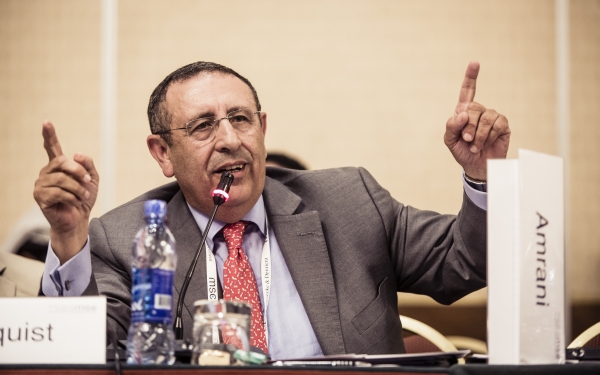
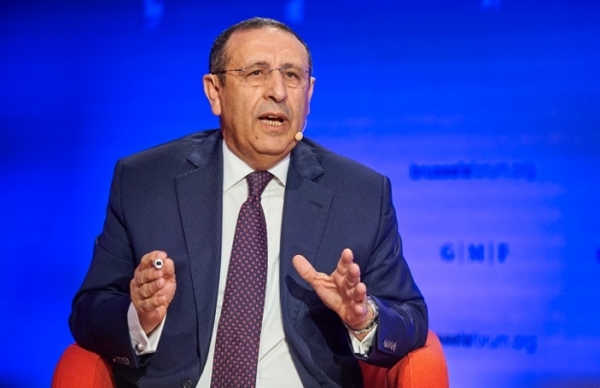
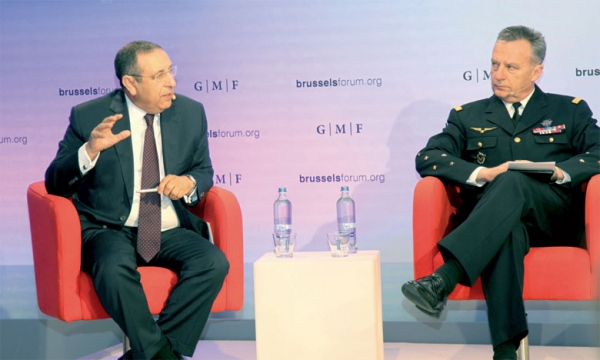
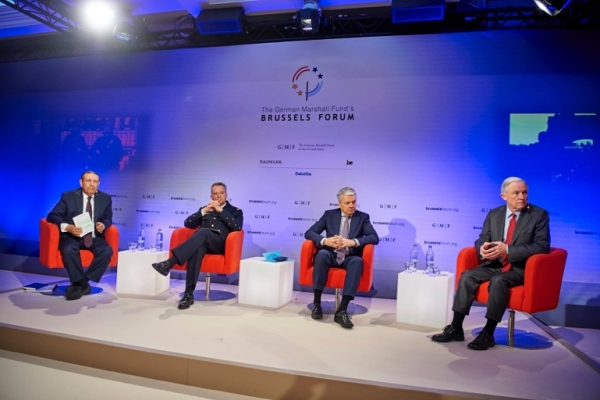
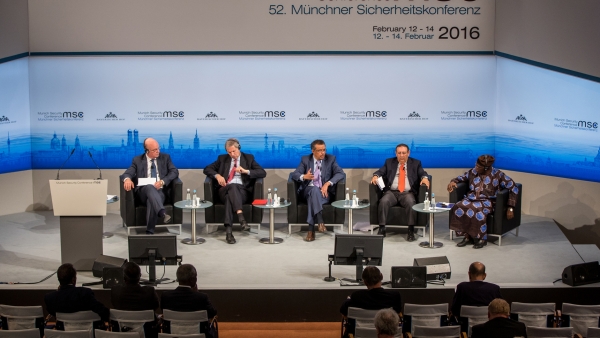
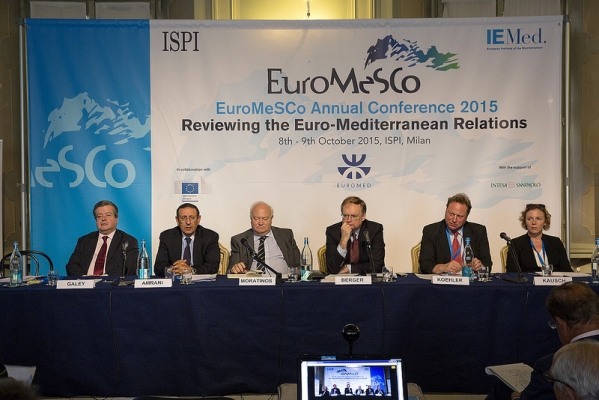
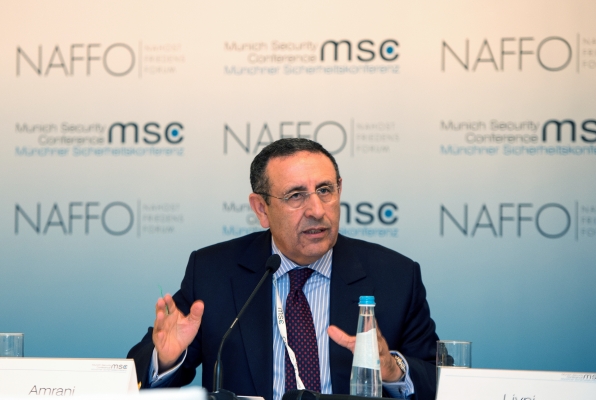
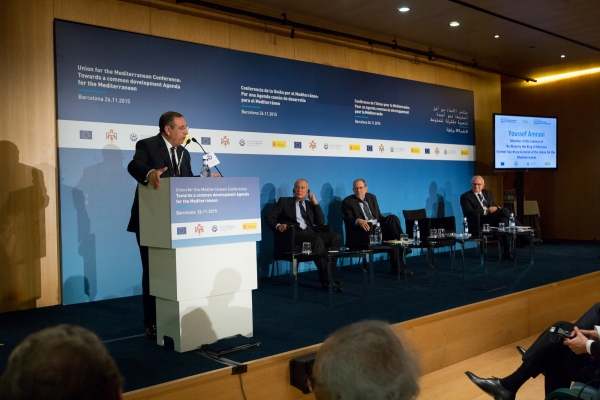
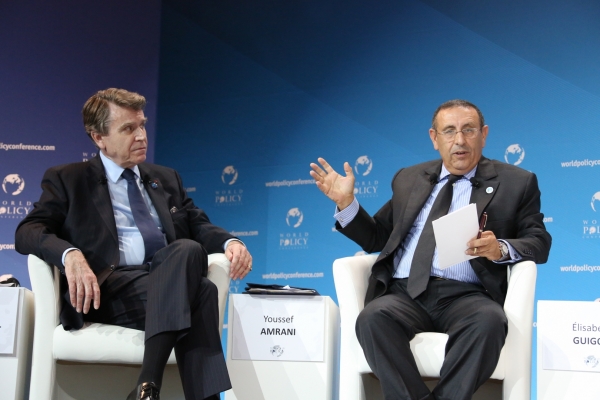


Today, in a context of momentous political changes and difficult economic conditions, the re-launch of the Maghreb Union has become an absolute necessity;
An efficient and dynamic Maghreb Union can allow countries of the region work together effectively to address the various common socio-economic challenges facing us.
Regional integration can act as a locomotive for positive development by:
– fostering positive regional economic dynamics
– helping attract investments;
– reducing unemployment and increasing growth;
Regional integration is also the obvious answer to a number of increasingly worrying trans-border security issues, arising most notably in Sahel area;
Given these manifest arguments in favor of a united Maghreb, the key question is how do we now transform our shared aspiration into a concrete regional dynamic leading to economic integration, longstanding stability and security, as well as shared prosperity?
CONDITIONS FOR A REGIONAL INTEGRATION OF THE MAGHREB:
Security and stability are crucial to all of our countries. However, they cannot be preserved alone. Long-term stability requires the pursuit of a comprehensive process of social, political and economic reforms that can help overcome the root causes of instability in a permanent manner;
For socio-economic transformation to succeed, it must derive from a sovereign endeavor based on a home-grown process, specific to each country of the region. Our countries must each do their homework, internally, so that the building blocks of our regional integration may be solid and stand the test of time. Needless to say, events have proven that such strength and solidity can only result from genuine, sustainable democratic progress.
For over more than a decade, Morocco has been working hard. The Kingdom has embarked into a longstanding process of profound democratic reform that has been significantly reinforced by a landmark Constitutional reform, adopted by popular referendum in June 2011;
The revised Constitution establishes a truly democratic model based on the separation of powers and the Rule of Law. In addition, it enshrines the principles of good governance, human rights, protection of individual freedoms and upholds the connection between responsibility and accountability;
Our evolutionary and pacific Moroccan experience – similarly to the Turkish and Indonesian models – demonstrates that Islam is perfectly compatible with democray, human rights and freedom. It provides clear proof that positive change is possible in the Arab world without bloodshed, strife and chaos.
Our national experience demonstrates that democratic change can also be achieved within a structured framework of development and reform, as long as it stays focused on the legitimate aspirations and expectations of all its people, with no exception ;
The success of such a process also implies the support of all key actors in the region and especially the support of the EU within the framework of the New Neighborhood Policy, the Union for the Mediterranean and the Partnership of Deauville;
However, national efforts can only go so far and in today’s interdependent world, States rely more than ever on the strength of their immediate region to act on the global stage. National efforts are insufficient to ensure continued growth and development if we don’t succeed in reactivating, renovating, and intensifying our south-south cooperation;
This starts with removing the barriers to intra-Maghreb flows of wealth, people and ideas.
THE ECONOMIC STAKES OF THE MAGREB ARAB UNION
In the Royal Speech of November 6, 2011 His Majesty King Mohammed VI expressed his will to place Maghreb unity at the core of regional dynamics, acting as « real motive of Arab unity, an active partner in the euro-Mediterranean cooperation, a factor of stability and security in the Sahel-Saharan zone, and a structuring actor of African integration « ;
In this context, it is the economy that speaks the loudest about the clear advantages of an effective Maghreb integration.
On paper, our economies are highly complementary with an impressive potential for shared growth and prosperity that could extend well beyond the immediate neighborhood. Increased exchange between our countries would trigger undeniable benefits for regional business and multiply direct foreign investments intended for the Maghreb Union countries;
In 2020, the Maghreb will represent a market of an estimated 103 million consumers, growing to 112 million consumers by 2030 ;
According to various experts, if the Maghreb Union existed, it would have saved for the five countries an additional annual value of about $ 10 billion per year, which is equivalent to 5% of their combined gross domestic products;
The World Bank has estimated that further integration of the Maghreb (which takes into account liberalized services and business climate reforms) would be able to increase the real GDP per capita between 2005 and 2015 by an additional 34% for Algeria, 27 % for Morocco and 24% for Tunisia;
Today, the current international economic environment requires that countries of the Maghreb act urgently to create an open Maghreb economic space able respond to the challenges of globalization and to strengthen its position vis-à-vis other emerging economic groupings ;
The global financial crisis has also revealed that while the European Union could not eternally act as a locomotive for the Maghreb countries, the Maghreb certainly has the potential to become a significant source of growth for the northern Mediterranean;
In this redefined multipolar context, the Maghreb countries are called upon to seize this unique opportunity for change and work together towards the realization of a united, competitive, attractive, prosperous and strong Maghreb. Such a Maghreb can further empower our Nations individually and also help us gain a stronger collective standing on an increasingly crowded international scene;
Past mistakes, present emergencies and future perspectives all deliver the same stark message: that cost of non-Maghreb is no longer affordable for the 5 Maghreb countries, neither economically, nor politically or socially.
The cost of the Non Maghreb
As dictated by the laws of globalization, the regrettable state of the Non-Maghreb carries the risk of a complete political and economic marginalization of our region. The Maghreb will simply disappear from the radar of investors because of its fragmented and uncompetitive market which seriously punishes the Maghreb economies;
The General Secretariat of the Maghreb Union estimates that the delay in the Maghreb’s integration process costs each country in the region, 2% of its annual growth rate;
Intra-Maghreb trading represents less than 2% of total foreign trade of the region and this trend has been downward for a long time. It is the lowest regional rate in the world;
Management studies and financial projections of the Arab Maghreb Union (AMU) have estimated the shortfall at $ 2.1 billion per year (980 million without hydrocarbons);
In comparison, while the Maghreb gets only 3% of European investments, Mexico attracts, alone, 18% of North American investments;
One of the greatest obstacles to future development of the Maghreb is the issue of unemployment. According to different experts, the Maghreb loses nearly 200,000 jobs annually;
The Moroccan Department of studies and financial forecasts (DSFF), states that if political and regulatory conditions were met, the increase in the intensity of bilateral trade between these countries would be comparable to that observed in some regional groupings of emerging countries, notably Mercosur (the current level of intensity of exchange is 1);
Facts and figures are clear: We have everything to gain from regional integration which would spur growth and create trade, rather than operate a simple diversion of flow.
Economic integration provides the vital difference between successful, long-term solutions and insufficient short-term measures. That is why political divergences should no longer continue to prevent the emergence of an economically integrated Maghreb.
To this end, the advent of an economic Maghreb union requires a clear vision, a genuine political will and some specific tools.
CHALLENGES THAT MUST BE ADDRESSED BY THE MAGHREB COUNTRIES
Economic and social integration, as well as genuine political cooperation in the Maghreb, require the establishment of a comprehensive and enforceable roadmap with specific tools and clear objectives;
Since the Marrakech summit, a number of ministerial meetings, as well as meetings between senior officials and experts have been held. Dialogue and exchanges have therefore never been interrupted, demonstrating that the AMU already exists formally;
Yet where form exists, it is the substance that fails us. The Maghreb Union has indeed completed the construction of its institutions, but it should now seek to activate these institutions;
In this scope, the AMU needs to consolidate its institutions and to lay the groundwork of an ever closer union by eliminating barriers that impede the rapprochement of the five countries;
It will be necessary to reform the executive and operational mechanisms of the AMU by adopting innovative instruments that can optimize the ways and means to promote regional integration;
Equally, a Union that effectively succeeds in communicating through people-to-people contacts cannot succeed without the effective participation of civil society;
To this end, the two essential pillars upholding the future success of this project are a sincere and determined political will, as well as a new inclusive and collaborative approach involving all actors;
The Maghreb has entered into a new era carrying equal amounts of challenge and hope. Today, there are real opportunities to seize in order to ensure this fragile balance gives in to hope and triggers positive change;
At the heart of these opportunities lies regional integration – a key factor to ensure growth, job creation and attractiveness of our economies;
Given the current socioeconomic status of our region, it would be unforgivable to fail because of outdated political pretexts from another era that are still used to justify the AMU stalemate;
Today, the Arab Maghreb Union:
Represents a strategic necessity and a political ambition for all the Maghreb countries;
Reflects an economic necessity that will allow, in a few years, the creation of a common market and a strong competitive pole of one hundred million people;
Expresses the aspiration of people of the Maghreb for unity and for deepening exchanges and cooperation between all Maghreb actors;
Provides an effective answer to increasingly cross-cutting security issues in the region, notably in the Sahel area.
Throughout history, economic integration has proven a powerful tool in supporting the creation of shared wealth and acting as a vector for political development. This continued situation of the Non-Maghreb is clearly going against the tide of history;
Today, our challenges are common, our interests shared and we must act together. On this basis, the Maghreb countries now have historic window of opportunity and we have the responsibility to seize this chance before it is too late;
This implies above all, a strong and sincere political will;
Through tangible actions, Morocco has repeatedly shown its willingness to move forward in the implementation of the AMU which represents a strategic priority for the Kingdom;
Aspiring to a new spirit of shared commitment, Morocco is working tirelessly towards the realization of a Maghreb Union. Ours is a vision of Maghreb countries working together as one to strengthen its institutions, to deal responsibly with changes registered at the regional and international levels and to engage all its actors in building a prosperous integrated Maghreb, filled with promise of a better future for our coming generations;
As before, you can count on Morocco act with full determination and resolve in order transform this vision of a united Maghreb into tomorrow’s reality.
Thank you.